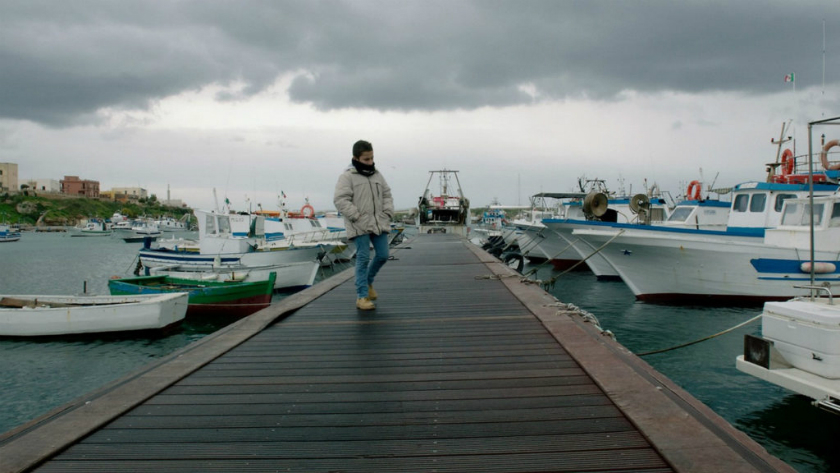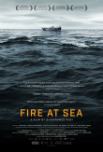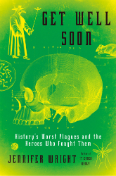
Here is a new DVD list highlighting various titles recently added to the library’s collection.
 “Fire at Sea”
“Fire at Sea”
Website / Reviews
An Academy Award nominee for Best Documentary Feature, this film takes place in Lampedusa, a remote Mediterranean island that has become a major entry point for refugees into Europe. There, we meet Samuele, a 12-year-old boy who lives simply, climbing rocks by the shore and playing with his slingshot. Nearby, we bear witness as thousands of people risk their lives to make the brutal crossing from Africa. Continue reading “New DVD List: Fire at Sea, Twin Peaks & More”
Here is a quick look at the most noteworthy nonfiction titles being released this January. Visit our catalog for a more extensive list.
TOP PICKS
 James Patterson is moving into true crime in a big way this year. He will release three true crime titles in January. Two of them, “Murder, Interrupted” and “Home Sweet Murder” will coincide with the first episodes of the television show “Murder Is Forever.” The third is “All American Murder,” the story of the professional football player Aaron Hernandez. A fourth is slated for release in February and it would not be surprising to see others announced for later in the year. Continue reading “Nonfiction Roundup: January 2018”
James Patterson is moving into true crime in a big way this year. He will release three true crime titles in January. Two of them, “Murder, Interrupted” and “Home Sweet Murder” will coincide with the first episodes of the television show “Murder Is Forever.” The third is “All American Murder,” the story of the professional football player Aaron Hernandez. A fourth is slated for release in February and it would not be surprising to see others announced for later in the year. Continue reading “Nonfiction Roundup: January 2018”
Editor’s note: This review was submitted by a library patron during the 2017 Adult Summer Reading program. We will continue to periodically share some of these reviews throughout the year.

“Get Well Soon: History’s Worst Plagues and the Heroes Who Fought Them” is great because it does not pretend to be something it’s not. From the onset, the author is unapologetic about her opinions, lets her sense of humor fly with abandon and is clear on her message. It works because she labels her opinions for what they are. There is snarky humor galore and the pages are rife with pop culture references. This topic is one for which laughter really is the best medicine, and making historic events tangible to modern readers is beneficial for being able to internalize the very serious issues at hand. The overarching “stunningly obvious” messages of this book are: (i) learn from the mistakes and successes of the past, (ii) our survival and quality of life during a plague depends on all of us, (iii) diseases do not infect people based on personality traits, income, sexual orientation or sin, and (iv) care about your fellow humans. Yet, as the epilogue reminds us, we continue to make the same mistakes through modern times.
Three words that describe this book: sincere, worthwhile, humorous
You might want to pick this book up if: you are interested in surviving an epidemic and you enjoy snarky humor.
-Shannon
Editor’s note: Several of our regular blog writers have looked back at the books they read in 2017, and they’ve each written their own “Year in Review.” This is the last installment. Enjoy!
2017 Year in Reading
Jeremiah
 2016 was tough; 2017 could have been better than 2016, but wasn’t. So, this year I re-read books for the comfort of knowing I’d spend hours reading well. I returned to Hanya Yanahihara’s “A Little Life” for the third time, and re-read, slowly, Maggie Nelson’s “The Argonauts,” “The Red Parts,” “Jane: A Murder,” “Bluets” and “The Art of Cruelty.” For their elegant sentences, challenging ideas, and strobe-like illumination, these books are treasures to me. The character of Jude, in “A Little Life,” reminded me that healing isn’t for all—that some people don’t change, that fate, in all its dogmatic baggage, binds, stills, abides, sustains. This novel again taught me also, among many other things, that happiness is plush, a privilege, not for everyone. I coupled this thought with Nelson’s insistence on queer world-making and queer family-making
2016 was tough; 2017 could have been better than 2016, but wasn’t. So, this year I re-read books for the comfort of knowing I’d spend hours reading well. I returned to Hanya Yanahihara’s “A Little Life” for the third time, and re-read, slowly, Maggie Nelson’s “The Argonauts,” “The Red Parts,” “Jane: A Murder,” “Bluets” and “The Art of Cruelty.” For their elegant sentences, challenging ideas, and strobe-like illumination, these books are treasures to me. The character of Jude, in “A Little Life,” reminded me that healing isn’t for all—that some people don’t change, that fate, in all its dogmatic baggage, binds, stills, abides, sustains. This novel again taught me also, among many other things, that happiness is plush, a privilege, not for everyone. I coupled this thought with Nelson’s insistence on queer world-making and queer family-making in “The Argonauts.” Even if happiness dissembles and eludes, there is pleasure. Continue reading “A Year in Reading: Rereads and More Favorites”
in “The Argonauts.” Even if happiness dissembles and eludes, there is pleasure. Continue reading “A Year in Reading: Rereads and More Favorites”
Editor’s note: Several of our regular blog writers have looked back at the books they read in 2017, and they’ve each written their own “Year in Review.” This is the first installment. Enjoy!
My Year in Books: Literary Travels
Anne
One of my favorite things to do in December is reflect on the books I’ve read over the past year. Reading is a bit like traveling, and it’s really nice remembering all the places I’ve been able to visit over the past year. In my “real life” I was blessed with trips to Hawaii and Colorado this year, but thanks to the books I’ve picked up this year, I’ve been able to travel to many other places and times. Here are some of the highlights:
 I journeyed to Australia in the twisty domestic thriller “Big Little Lies” by Liane Moriarty. This book recently inspired an award-winning miniseries on HBO, but the book is even better, offering a darkly humorous and suspenseful tale of how friendships and lies can lead to murder. Continue reading “A Year in Review: Travels and “Best of””
I journeyed to Australia in the twisty domestic thriller “Big Little Lies” by Liane Moriarty. This book recently inspired an award-winning miniseries on HBO, but the book is even better, offering a darkly humorous and suspenseful tale of how friendships and lies can lead to murder. Continue reading “A Year in Review: Travels and “Best of””
Our list of debut authors is very short this month as December is a quiet time of year for publishing. But quality over quantity, right?
 “The Last Suppers” by Mandy Mikulencak
“The Last Suppers” by Mandy Mikulencak
As the daughter of a murdered warden Ginny Polk is familiar with the harsh realities of prison life in the 1950s. Still, as an adult she chooses to return to the Greenmount State Penitentiary in Louisiana, where her father worked, as the prison cook. There she struggles to make peace with her past while serving prisoners on death row their last meals—along with a little compassion and human kindness.
Continue reading “Debut Author Spotlight: December”
 What does it mean to be a single mother in today’s world? What joys and challenges do single mothers face? Check out these documentaries featuring single mothers.
What does it mean to be a single mother in today’s world? What joys and challenges do single mothers face? Check out these documentaries featuring single mothers.
 “Kind Hearted Woman” (2013)
“Kind Hearted Woman” (2013)
This documentary acts as a portrait of a 32-year-old divorced single mother and Oglala Sioux woman living on North Dakota’s Spirit Lake Reservation. The film follows her over three years as she struggles to raise her two children, further her education and heal herself from the wounds of sexual abuse she suffered as a child. Continue reading “One to Grow On: Docs Featuring Single Mothers”
The year is almost over, and the staff here at the library want to share their favorite book of 2017 with you! I hope you enjoyed the first installment. Here are the rest of the best books read in 2017 by your DBRL staff:

“Dark Matter” by Blake Crouch
“Fast-paced and suspenseful, this novel is page-turner from the get-go. While categorized in the sci-fi genre, it invokes universal questions regarding the choices you make, the paths-not-traveled and what you would endure for those you love.”
~Dana S.
“Small Great Things” by Jodi Picoult
“I laughed, cried, and was forced to bear with some very ugly personal truths. ‘Small Great Things’ reads as a fantastic work of fiction, but also as a primer for fundamental conversations about race, privilege, inequality and basic human experiences. This book will grab you by the shoulders and shake you to the core.”
~Mitch C. Continue reading “Best Books Read in 2017, Part 2”
The year is almost over, and the staff here at the library want to share their favorite book of 2017 with you! These books might not have been published this year, but they all were enjoyed during it. Without further ado, here’s the first batch of the best books read in 2017 by your DBRL staff:
“A Man Called Ove” by Fredrik Backman
 ”Ove is a grumpy neighbor who still has a warm heart. ‘A Man called Ove’ will make you laugh and cry. It reminds us how caught up we can get in our daily routines, and how unwilling we are to change; but sometimes, someone comes along and change is okay.”
”Ove is a grumpy neighbor who still has a warm heart. ‘A Man called Ove’ will make you laugh and cry. It reminds us how caught up we can get in our daily routines, and how unwilling we are to change; but sometimes, someone comes along and change is okay.”
~Sheryl Bucklew
“At first I thought it was going to be depressing, but it quickly took a comedic and touching turn as Ove learns to keep on living without his wife.”
~Mitzi Continue reading “Best Books Read in 2017, Part 1”
 “Fire at Sea”
“Fire at Sea”






 If you are an adoptee born in Missouri, access to a copy of your original birth certificate will now be available to you! As of January 2, 2018, a new law in Missouri will allow those 18 and older access to a copy of their original birth certificate without the need for a court order. To help celebrate this milestone event,
If you are an adoptee born in Missouri, access to a copy of your original birth certificate will now be available to you! As of January 2, 2018, a new law in Missouri will allow those 18 and older access to a copy of their original birth certificate without the need for a court order. To help celebrate this milestone event,